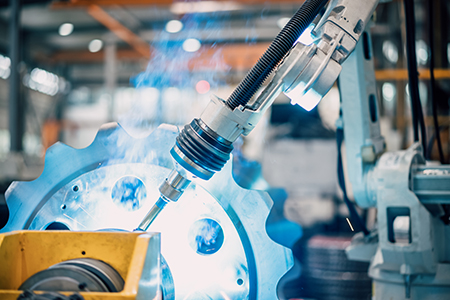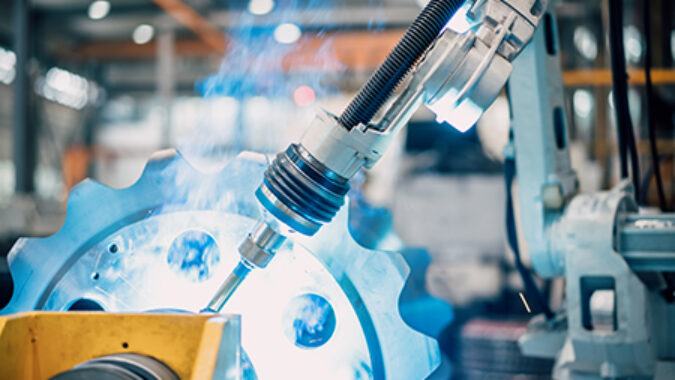 With workers and customers seeking to avoid human interaction during the COVID-19 pandemic as much as possible, industry experts say the ongoing trend toward greater automation in the workplace is accelerating.
With workers and customers seeking to avoid human interaction during the COVID-19 pandemic as much as possible, industry experts say the ongoing trend toward greater automation in the workplace is accelerating.
In a recent PwC survey, 44% of corporate financial officers said they were considering utilizing more automation in response to the coronavirus, writes Tim Henderson in The Pew Charitable Trust’s weekly newsletter Stateline. Adding more robots can help factories keep up production when they must limit the number of human workers for safety’s sake.
Stateline noted that White Castle plans to start using a robot fryer named “Flippy” this fall in Chicago in order to minimize human contact with food. Tyson Foods has sped up its ongoing work on a robot chicken butcher in recent months, citing increased urgency because of the pandemic.
Robotic welders are also popular because of pandemic worker safety issues and because companies are bringing back work to the United States from overseas to avoid COVID-19 supply chain issues. The robot welders handle more routine tasks, freeing up skilled human welders for more complex tasks.
Jobs also could become automated for some workers such as computer programmers, medical assistants and sales professionals, Stateline noted. Already robots can do hospital jobs that have become increasingly dangerous during the pandemic, such as cleaning patient rooms. Using robots for this task helps minimize staff exposure to COVID-19 and other infectious diseases.

